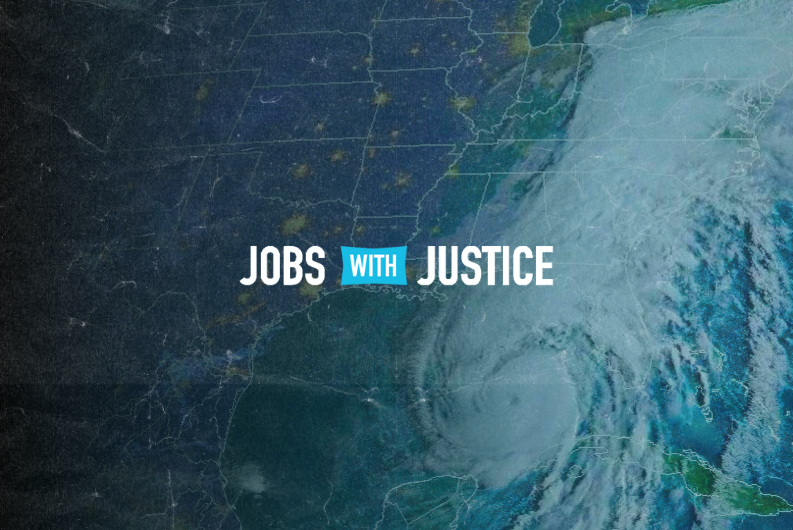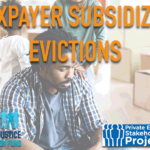As search and rescue missions continue throughout the southeast in the aftermath of Hurricane Helene, testimonies have begun to surface of workers forced to weather the hurricane on the clock in rising flood waters and downed power lines.
“Climate disasters are no longer just ‘once-in-a-generation’ events,” said Erica Smiley, Jobs With Justice Executive Director. “Twenty-first century weather events are, more often than not, breaking records. And storms like Helene have left devastation behind that has never been recorded in history. Workers must have access to hazard pay, crisis leave, and enforceable safety regulations that keep them safe in this new reality orchestrated by the fossil fuel industry and enflamed through corporate greed.”
While the Biden administration quickly released aid to multiple states, Tennessee Governor Bill Lee was the only state leader to withhold his request for aid until hundreds of Tennesseans were already missing and impacted by the devastating floods. Where government officials are failing and aid is moving slowly, mutual aid groups are filling the gaps.
In Erwin, Tennessee, multiple family members – predominantly from the immigrant community – are searching for loved ones who were never released from work at Impact Plastics. “She was still working when she called me and she told me that it was really raining and I told her to leave, but she told me they weren’t telling her anything”, said the son of a missing person, Fernando Ruiz. The Tennessee Bureau of Investigations has opened an investigation into at least eleven workers believed to have been swept away in flood waters.
In York County, South Carolina, sanitation worker Ernest Miller describes reporting to work despite a power outage at their hub.
“It was made mandatory we stayed until the crew chief had an opportunity to survey the grounds. We were told to stay until daybreak. The conditions were extreme and more dangerous in the dark – there were live power lines that were down. Most of us did not feel safe, and we wanted to go home and check in on our families due to several power outages.”
In North Carolina, Southern service workers are on the frontlines helping their neighbors get life-saving supplies while also navigating devastating losses.
Workers forced to clock in under hazardous conditions is not a new phenomenon. In Sonoma County, farmworkers have been demanding disaster pay after being forced to choose between safety and a paycheck during California wildfires and extreme heat waves. In 2021, 8 workers in Kentucky died at a candle factory during a December tornado outbreak. Their employer, Mayfield Consumer Products, had threatened to fire workers if they left before the tornado hit. As early as 2017, coastal municipalities in Florida have been working to implement safety nets for workers facing the seasonal threat of hurricanes.
“The southern United States has especially experienced the impacts of crumbling infrastructure for more than a century, and climate disasters fueled by corporate greed only compound these issues. But people tossed in the mud know how to dig out of the muck. We must commit to building a lasting resiliency that serves workers and their communities for generations,” said Smiley.
Jobs With Justice encourages others to support grassroots organizations on the ground – from Florida to the Carolinas. A strong network of mutual aid systems has already been cultivated in the region. Neighbors keep neighbors safe!
Please consider giving directly to autonomous mutual aid groups here: itsgoingdown.org/mutual-aid-hurricane-helene/.
Other resources:
- Help CWA District 3 members & retirees devastated by Hurricane Helene
- Donate to support Bertha’s family, a worker who died at work during the hurricane
- Donate to support Monica’s family, a worker who died at work during the hurricane
- Southern Service Workers’ Hurricane Helene Disaster Relief
- Hurricane Helene Response Fund housed at Amalgamated Foundation, to support Community Recovery and Organizing efforts




